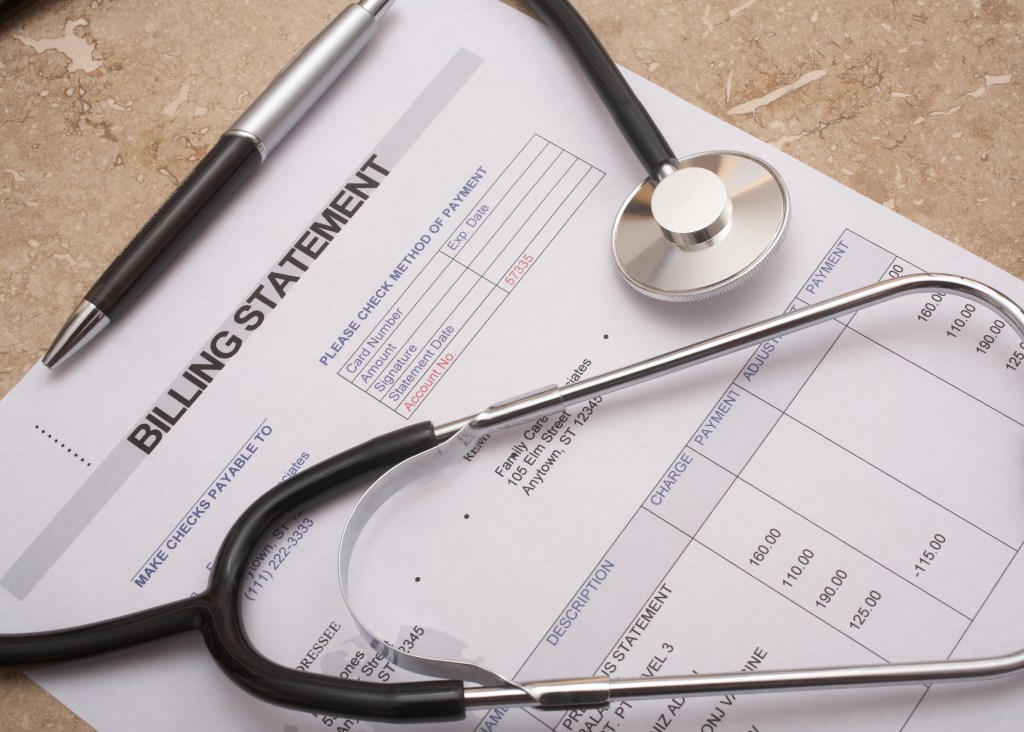Getting out of Medical Debt

Medical Bills Don’t Have to Stick with You: Here’s How to Get Out of Medical Debt
If one thing is certain in life, it’s that nothing is certain. Even if you’re the healthiest person you know, everyone gets sick sometimes, and if you have kids, you likely know all about unplanned doctor and hospital visits.
So, what do you do when medical debt starts to stack up? Is there a way to negotiate hospital bills? What about payment plans? Will any of this affect your credit?
Don’t worry; we have all these answers and more. Read on to learn more about medical debt and what you can do to get out of it quickly.
Does Medical Debt Affect My Credit Score?
Even with the best insurance, a medical emergency can leave you with hefty out-of-pocket costs. The more complex the procedure, the more bills you may end up with, hospital room stays, physician fees, anesthesia, blood panels – the list goes on. These are often billed separately, and before you know it, one hospital stay can turn into a financial nightmare.
Before you panic, here’s the good news: medical debt won’t show up on your credit report unless you don’t pay it for a significant period of time. Your bill won’t be passed off to a collections agency until it’s 60, 90, or 120 days past due, depending on the medical provider. This means you have a good amount of time to either pay the bill off or work out a payment plan.
Programs to Help Minimize Medical Debt’s Impact
Because of the increasing financial burdens American families have faced since the start of COVID-19, efforts are being made to help reduce medical debt and its impact, such as:
- The Medical Debt Relief Act: Introduced to federal legislature in 2021 (sometimes referred to as the Medical Debt Forgiveness Act), this bill would enact a one-year waiting period before a medical bill can be reported to a credit bureau as delinquent. It would also remove any negative marks from past-due medical bills if the bill was paid off or settled. Although it hasn’t yet been fully adopted yet, this act would provide more time for individuals with medical debt to pay off their bills.
- Changes in consumer credit-reporting bureaus: As of January 2023, the major consumer credit-reporting bureaus will no longer report medical debt under $500. This means even if you have a delinquent medical bill under $500, your credit score won’t be impacted.
- Can I Negotiate Medical Bills?
- Most hospitals and medical providers will help with medical bills if you’re struggling to pay. Here’s how to negotiate medical bills effectively:
- Be proactive. Don’t wait until you see that glaring red “FINAL NOTICE” bill. If you get a medical bill, call the billing office right away and ask for assistance. They’ll be eager to help, and it will ease your mind to have arrangements in place, so the bill doesn’t go to collections.
- Ask to apply for financial assistance. Most medical systems have provisions in place to reduce or eliminate bills for families in need. Even if you’re not sure you’ll be eligible, ask the billing office if they provide financial assistance and if so, how to apply. If you do qualify, your bill will either be forgiven entirely or significantly reduced.
- Get on a payment plan. If you don’t qualify for financial assistance, you can still ask about payment plans so you don’t have to pay the full amount at once. Most providers will work with you based on how much you can afford to pay and schedule out payments monthly. Some can even set up automatic payments, so you never accidentally forget a payment.
Can I Negotiate Medical Bills?
Most hospitals and medical providers will help with medical bills if you’re struggling to pay. Here’s how to negotiate medical bills effectively:
- Be proactive. Don’t wait until you see that glaring red “FINAL NOTICE” bill. If you get a medical bill, call the billing office right away and ask for assistance. They’ll be eager to help, and it will ease your mind to have arrangements in place, so the bill doesn’t go to collections.
- Ask to apply for financial assistance. Most medical systems have provisions in place to reduce or eliminate bills for families in need. Even if you’re not sure you’ll be eligible, ask the billing office if they provide financial assistance and if so, how to apply. If you do qualify, your bill will either be forgiven entirely or significantly reduced.
- Get on a payment plan. If you don’t qualify for financial assistance, you can still ask about payment plans so you don’t have to pay the full amount at once. Most providers will work with you based on how much you can afford to pay and schedule out payments monthly. Some can even set up automatic payments, so you never accidentally forget a payment.
Get a Quick Lift with LendNation
Sometimes, even if you do your best to keep up on medical bills, debt can pile up. If you’re struggling under the weight of medical debt and you need to quickly make a payment, turn to LendNation. With quick approval, you can get quick cash to pay off your medical debts.
See LendNation’s loan options to find what’s right for your situation, or reach out to a LendNation representative if you need help with an application.
Resources:
- https://www.goodrx.com/healthcare-access/medical-debt/new-laws-2023
- https://library.nclc.org/article/new-consumer-law-rights-taking-effect-2023
- https://www.lendnation.com/blog/article/medical-bills-and-your-credit
- https://www.lendnation.com/blog/article/4-ways-to-negotiate-your-bills-to-save-money
- https://www.lendnation.com/location/